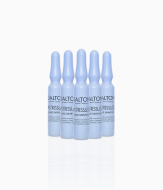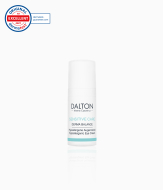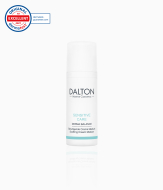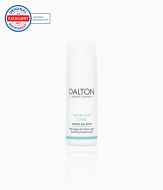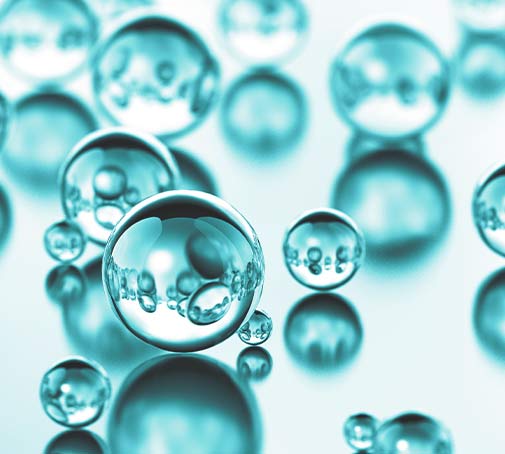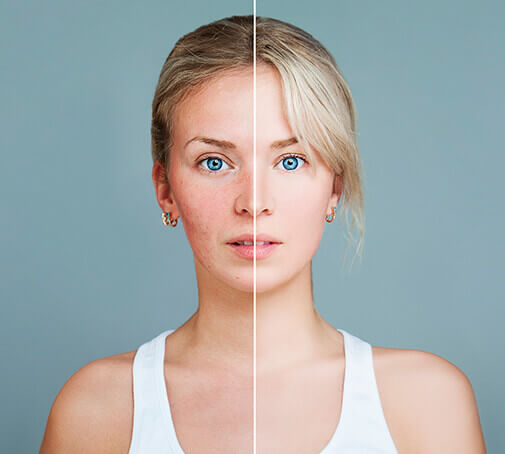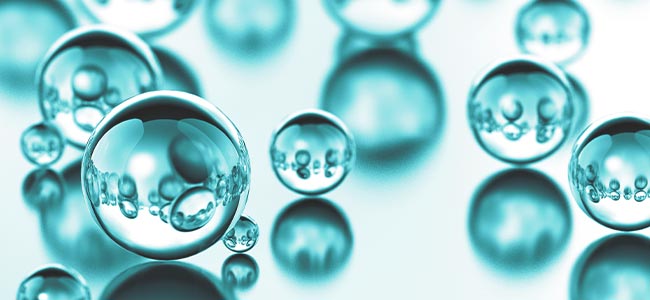
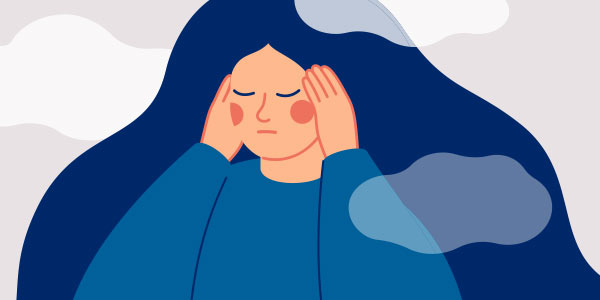
22 September 2025
How Does Stress Affect Your Skin?
If you’re feeling stressed, so is your skin. In this article we’ll focus on how reducing stress, anxiety and pressure in your everyday life will not just improve your mental health, but also prevent skin problems from coming up.
This is what we’ll explore in this article:
Stress Effects on Skin
Sudden stressful situations put our body into a state of emergency and on high alert. When we are scared, we get goosebumps. When temperature is rising, we start to sweat and when it’s cold, we start to freeze and shiver. For a short time, our body can handle this without any problems. After all, it is trained to do so. When our body experiences stress, the nervous system goes into overdrive to maximize performance, while other processes begin to shut down in order to redirect energy. Unfortunately, this can also disrupt the skin barrier function.
Chronic stress can be psychologically and physically debilitating and also has a negative effect on your skin health.
Symptoms of Stress-Related Skin Problems
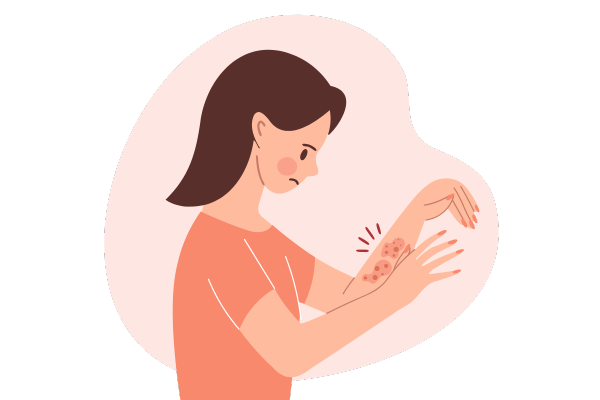



First Signs and Symptoms:
- Diffuse redness
- Red spots and rashes
- Severe itching
- Swelling, blisters
- Atopic dermatitis
- Scaly patches of skin
- Dry skin
If you already have a skin condition like for example eczema, psoriasis or acne, stress can also make those conditions worse.
Why Stress Can Trigger Skin Rashes
Our skin and psyche are closely connected. If you suffer from psychological stress, it can really take a toll on your skin health. Even the smallest of emotions may be betrayed by your skin: You blush when you experience embarrassment or break out in splotchy, red patches when you are nervous. If the skin’s immune system is generally weakened, it can easily trigger stress-related hives, rashes or other skin conditions. This starts a vicious cycle! Skin problems can lead to a lack of self-confidence and low self-esteem, which adds additional stress and can make symptoms even worse.
External Stressors
Emotional stress is not the only thing that can weaken the skin’s immune system. External factors can also disrupt the skin barrier and trigger symptom flare-ups.
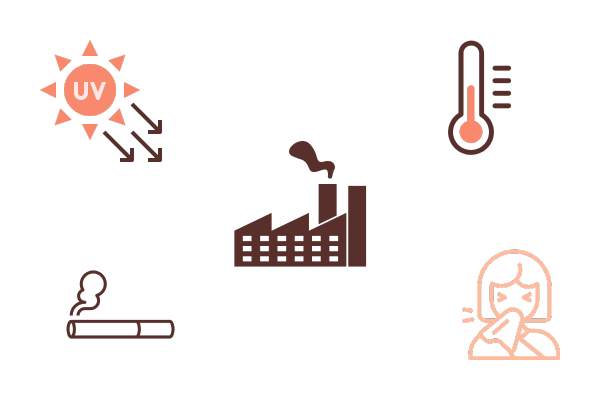



Possible triggers:
- Air pollution and environmental stress
- UV radiance
- Extreme temperature changes
- Allergic reactions (contact dermatitis)
- Smoking
Best Skincare Products for Stressed Skin
Which Cream Works Best for Stress-Related Rashes?
When your skin shows signs of stress or reacts with a rash, it needs gentle care - formulas that support the skin’s protective barrier and calm irritation. Our SENSITIVE CARE Products are designed to strengthen the skin barrier while at the same time reducing itchy skin and redness. This product line is ideal for very sensitive, allergy-prone skin.
Stress Rash – What You Can Do About It
Along with the right cream, a consistent skincare routine is key. Avoid harsh cleansers, keep your skin well hydrated and opt for soothing ingredients such as ceramides, urea, or hyaluronic acid.
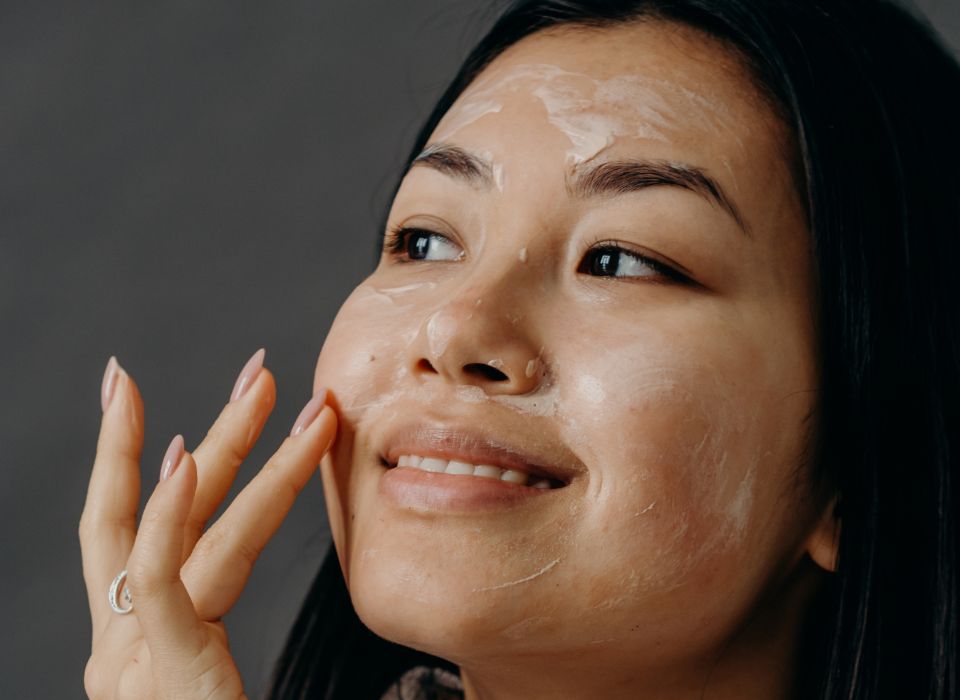

Our products for stressed skin:
- 5 CERAMIDE Serum: perfect for when your skin is acting up. It brings together anti-aging, skin repair, and barrier-strengthening benefits.
- HYALURONIC UREA Serum: provides intense moisture, prevents dehydration and visibly plumps fine lines caused by dryness.
- Vegan gel eye patches: hydrate and soothe irritated skin around the eyes.
- #stressless oil ampoules: pamper stressed, dry and irritated skin.
- MINERAL CARE MED products: soothe very dry skin prone to eczema. With Dead Sea salt to relieve itching.
- More products for rough and itchy skin


Not sure which products are right for your skin?
No problem! Just take 5 minutes to complete our Product Finder Questionnaire. One of our qualified DALTON skincare experts will review your answers and create a recommendation tailored perfectly to your needs. And don’t worry—this service is completely free of charge. If you like, we’ll even send you a set of product samples so you can try the products our experts have selected for you.
How to Prevent Stress for Healthier Skin
Slow down and reduce stress-inducing habits!
Time to take a break from your busy everyday life and recharge your batteries with the following tips:
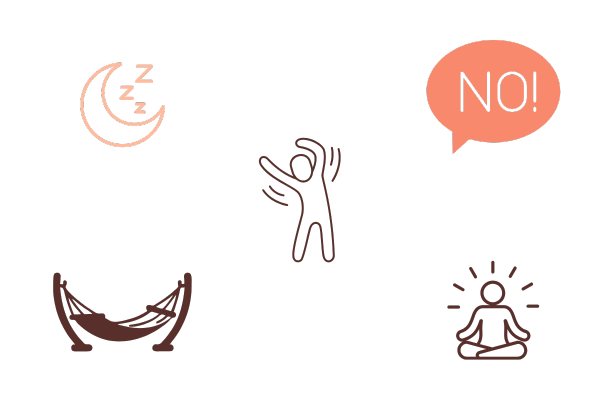



- Progressive muscle relaxation to decrease anxiety
- Getting enough sleep keeps your energy levels up
- Exercising improves blood circulation, clears your mind and reduces stress hormones
- Learn to say No! Set priorities and focus on the important things
- Take more time for leisure activities
Skin Rash: When Should You See a Doctor?
There are many triggers for severe itching and rashes aside from stress or psychological problems. Skin conditions like eczema or acne are often caused by genetic factors or hormonal changes. Still, you should always try to reduce stress to a minimum. Even if it’s not the primary cause of your skin problems, it can still worsen your symptoms. Most treatments for skin conditions focus mainly on relieving discomfort. What actually causes them is sometimes not yet fully understood and can therefore be difficult to diagnose.
You should always consult a doctor if you experience persistent itch or rashes.
SIMILAR POSTS
You Might Also Like

